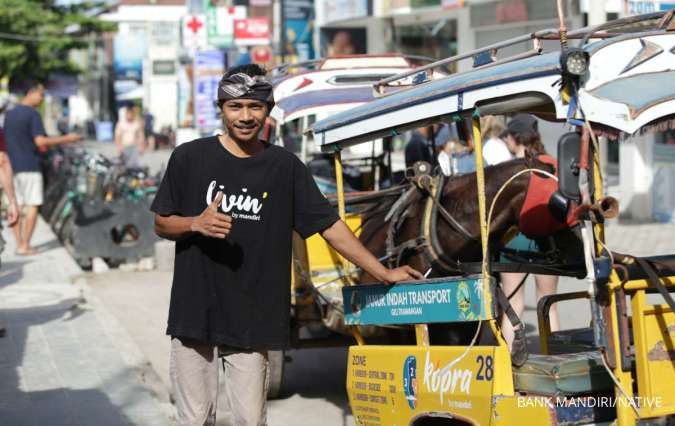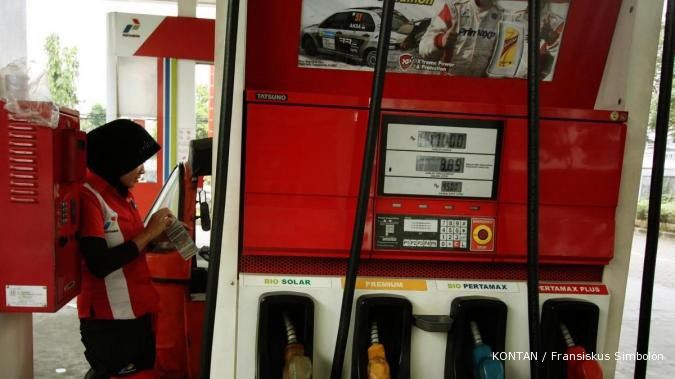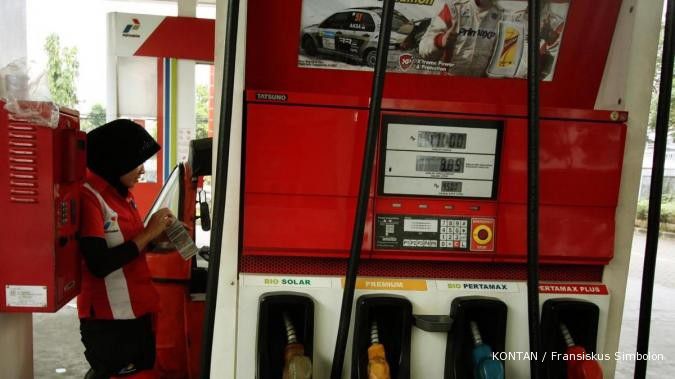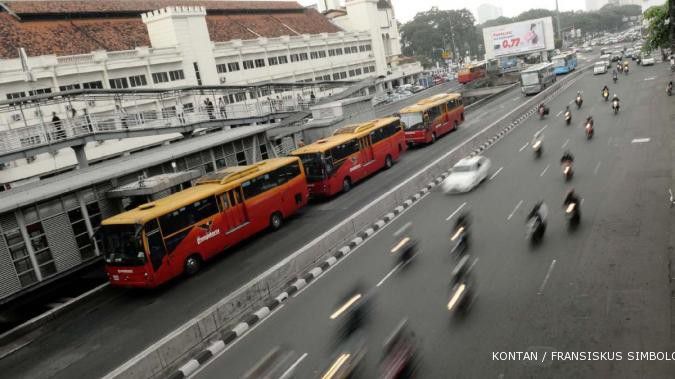JAKARTA. The nation’s poverty rate may spike above the government’s 2012 target due to the government’s planned subsidized fuel-price increase, which may result in higher prices across the board.Higher fuel prices might plunge 12.8 percent of the nation’s population below the poverty line, compared with the government’s target of between 11.5 and 12.5 percent as stated in the 2012 state budget, Finance Minister Agus Martowardojo said on Monday.Instead, the government revised downward its targeted poverty rate at between 10.5 and 11.5 percent due to the planned “temporary direct assistance for the people” (BLSM) program.The cash-aid program will allot Rp 150,000 for each low-income household for nine months after the fuel policy takes effect, according to the 2010 revised state budget draft.President Susilo Bambang Yudhoyono suggested the introduction of the cash-aid program to compensate the poor for the planned energy price hike, which would be distributed to 30 percent of the country’s registered residents.“According to the latest data, 18 million households will be eligible to be assisted under the program,” Agus said after a hearing with House of Representatives Commission XI on finance in Jakarta on Monday. “The total amount of direct assistance is Rp 25.6 trillion.”The government has proposed numerous adjustments for its energy subsidy policies, including conditionally raising fuel prices without House approval. As for the electricity subsidy, the government has proposed a 3 percent hike per quarter as of the second quarter of this year.The implementation of both of the energy subsidy adjustments has the potential to significantly raise inflation rates and, therefore, affect the purchasing power of the lower-class economy segment — a large portion of the country’s demographics.Agus said that other than the direct cash assistance program, the government was set to launch other compensation programs, such as the rice-for-the-poor program, scholarships and public transportation subsidies, to ease the impact of the planned fuel-price hike on the poor.Energy and Mineral Resources Minister Jero Wacik previously said that the government planned to increase fuel prices Rp 1,500 per liter to Rp 6,000 per liter if the revised state budget draft was approved by the House.Gadjah Mada University economist Anggito Abimanyu said the fuel-price hike should be only Rp 1,000 per liter if the government wanted to raise fuel prices. By doing this, the fuel price would stand at Rp 5,500 per liter. “The impact of raising fuel prices by Rp 1,500 per liter will be too significant and I, therefore, believe the best policy is for the government to raise it by Rp 1,000 per liter,” Anggito said.“If fuel is raised Rp 1,500 per liter, then inflation could rise by 2 percent. On the other hand, if the price is raised only Rp 1,000 per liter, then the impact on inflation would be less than 2 percent,” he added.Bank Indonesia (BI) Governor Darmin Nasution has said that the government’s plans on energy subsidies might result in a “one-time shock” inflation of up to 7.1 percent from 3.56 percent in February. (Hans David Tampubolon/ The Jakarta Post)
Fuel price hike may increase poverty rate
JAKARTA. The nation’s poverty rate may spike above the government’s 2012 target due to the government’s planned subsidized fuel-price increase, which may result in higher prices across the board.Higher fuel prices might plunge 12.8 percent of the nation’s population below the poverty line, compared with the government’s target of between 11.5 and 12.5 percent as stated in the 2012 state budget, Finance Minister Agus Martowardojo said on Monday.Instead, the government revised downward its targeted poverty rate at between 10.5 and 11.5 percent due to the planned “temporary direct assistance for the people” (BLSM) program.The cash-aid program will allot Rp 150,000 for each low-income household for nine months after the fuel policy takes effect, according to the 2010 revised state budget draft.President Susilo Bambang Yudhoyono suggested the introduction of the cash-aid program to compensate the poor for the planned energy price hike, which would be distributed to 30 percent of the country’s registered residents.“According to the latest data, 18 million households will be eligible to be assisted under the program,” Agus said after a hearing with House of Representatives Commission XI on finance in Jakarta on Monday. “The total amount of direct assistance is Rp 25.6 trillion.”The government has proposed numerous adjustments for its energy subsidy policies, including conditionally raising fuel prices without House approval. As for the electricity subsidy, the government has proposed a 3 percent hike per quarter as of the second quarter of this year.The implementation of both of the energy subsidy adjustments has the potential to significantly raise inflation rates and, therefore, affect the purchasing power of the lower-class economy segment — a large portion of the country’s demographics.Agus said that other than the direct cash assistance program, the government was set to launch other compensation programs, such as the rice-for-the-poor program, scholarships and public transportation subsidies, to ease the impact of the planned fuel-price hike on the poor.Energy and Mineral Resources Minister Jero Wacik previously said that the government planned to increase fuel prices Rp 1,500 per liter to Rp 6,000 per liter if the revised state budget draft was approved by the House.Gadjah Mada University economist Anggito Abimanyu said the fuel-price hike should be only Rp 1,000 per liter if the government wanted to raise fuel prices. By doing this, the fuel price would stand at Rp 5,500 per liter. “The impact of raising fuel prices by Rp 1,500 per liter will be too significant and I, therefore, believe the best policy is for the government to raise it by Rp 1,000 per liter,” Anggito said.“If fuel is raised Rp 1,500 per liter, then inflation could rise by 2 percent. On the other hand, if the price is raised only Rp 1,000 per liter, then the impact on inflation would be less than 2 percent,” he added.Bank Indonesia (BI) Governor Darmin Nasution has said that the government’s plans on energy subsidies might result in a “one-time shock” inflation of up to 7.1 percent from 3.56 percent in February. (Hans David Tampubolon/ The Jakarta Post)





